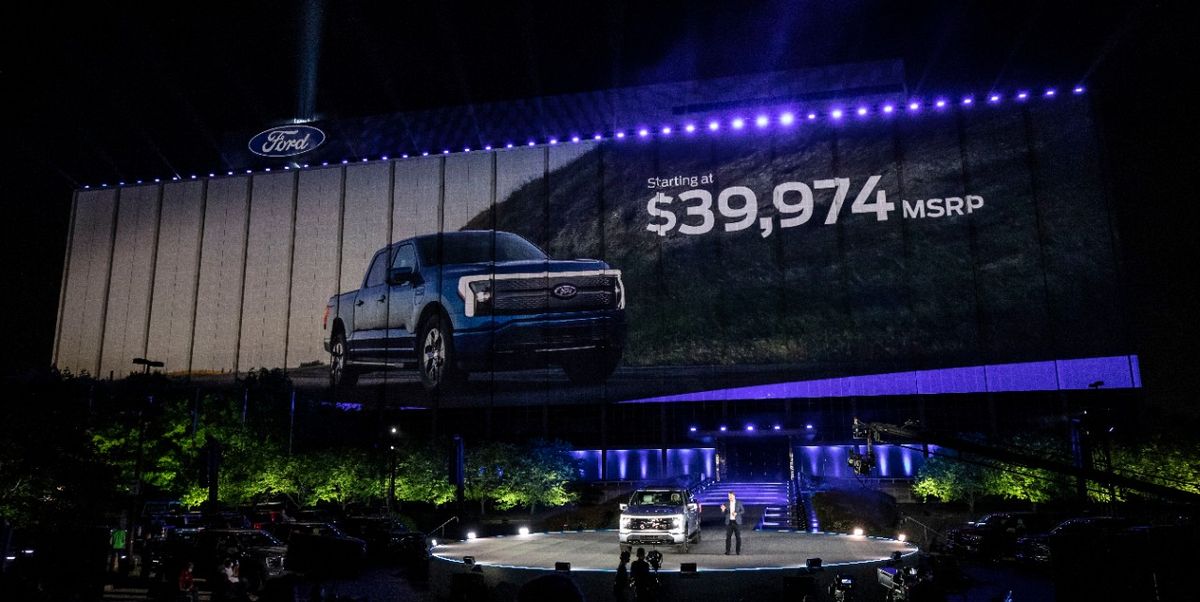Ford Clarifies CEO Jim Farley's Comments on Digital Sales

Comments from Ford CEO Jim Farley on Thursday seemed to indicate that the company was going to transition to 100-percent online, fixed-price sales for its EV offerings to stay competitive with modern retail expectations. A Ford spokesperson clarified those comments on Friday, which he says were taken out of context.
Rather than a complete transition to a new distribution model, Ford spokesperson Said Deep told Road & Track that Ford is simply discussing developing a 100 percent digital online transaction platform, rather than transitioning 100 percent of sales to a digital platform. In Farley’s initial comments reported Thursday, he compares the sales strategy to how some retail companies adjusted to digital competitors.
“I believe for retail, we have to . . . It’s kind of like what happened between Amazon and Target. Target could have gone away, but they didn’t,” Farley says. “They bolted on an e-commerce platform and then they use their physical store to add groceries, and make returns much easier than Amazon. They use their expertise as a physical retailer to their advantage, but they modernize the e-commerce piece, so it would be really easy to do business with them. It’s exactly what we have to do on the retail side. We got to go to non-negotiated price, we got to go to 100 percent online. The vehicle, there’s no inventory, goes directly to the customer, 100 percent remote pickup and delivery. But then we have this opportunity to use our physical presence to outperform them.”
When asked if the change would mean transitioning away from a dealer model to focus on direct-to-consumer sales, Deep reaffirmed that the Ford dealer network remains a crucial element of the company’s future.
“Our dealers are a competitive advantage for us as they are closely connected with their customers and communities they serve,” says Deep. “This is the reason we are leaning into them and working with them to dramatically improve our overall customer experience for EVs. We want them to be even more specialized in the future, and we plan to craft a new set of operating standards for Ford EV sales that would combine the ease and most popular aspects of direct-sale startups with the expertise our dealers have developed over more than a century. Ford and our dealers want to deliver the best experience we can for our customers. The digital retailing experience is critical. Whether the customer is at home or in a dealer showroom, they expect an outstanding digital experience. Our ability, together with our dealers, to deliver a 100 percent digitally supported, world-class customer experience is going to serve our customers very well no matter how they want to do business with us.”
The quote indicates that the existing dealer model will be integrated with something that resembles the direct sale model for the consumer, including direct delivery. It does not necessarily mean that dealers would not have stock on hand, though.
“Directly to the customer is about sourcing just in time—built to order for an individual customer and delivered through our dealer network,” Deep says. “If they want it delivered directly to their home, our dealers can help do that as well. We’ve had great success with this already on Mustang Mach-E and F-150 Lightning. This is just one way we are looking at reducing the amount of stock a dealer needs to hold, reducing costs for both Ford and our dealers that we can reinvest in more compelling products and services for our customers.”
This content is created and maintained by a third party, and imported onto this page to help users provide their email addresses. You may be able to find more information about this and similar content at piano.io



